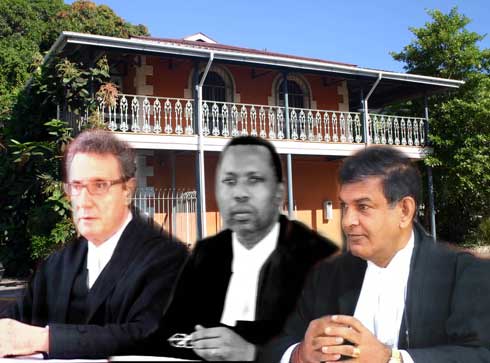

COURT OF APPEAL DELIVERS LANDMARK RULING ON CONSTITUTION

The Seychelles Court of Appeal, the court of highest jurisdiction in the
In his submission to the Court of Appeal,
It is to be remembered that
(1) that
(2) there has been no contravention of the Constitution by the Electoral Commissioner.
The Court of Appeal promptly and without hesitation overturned the decision of the
“To that extent the interpretation of learned Judge Karunakaran, while it has the virtue of having drawn the correct distinction, trips where he adds that the petitioner in such a case should come to Court with an “actual” contravention. The learned Judge also went beyond the provisions of article 130(1) when he introduced the concept of injury in the simple and plain word “interest” when he stated that in an application under article 130 (1), one should show “the existence of an injury to one’s interest.” That is the jurisprudence of the
The Court of Appeal was of the view that in
The ruling is a landmark one in that it changes the way a
Reading the judgement on behalf of the Court of Appeal on the issue of locus standi (a legal term to mean whether you have sufficient interest in the issue) Judge Domah said “A Constitutional Court is different and we dare say its judges display a pro-active frame of mind and read into the seeds of time thrown in and about in the Charter of the people. Its role should not be confused with that of a civil court or a criminal court. It sits between the power of the people and the authority of the organized government to ensure that public affairs are conducted within the frame-work tacitly agreed upon and enshrined in the Charter. It is the temple and the throne to which the citizen- pecunious or impecunious – rushes to with a view to ensuring that the people power delegated to authority are properly used and not abused. Its prime purpose is to make the Constitution work. For
The issue of locus standi dominated the arguments by counsels on Monday, when the Court of Appeal virtually spent the whole day hearing arguments of lead counsel for the Democratic Party – attorney
The original petition brought by the leader of the Democratic Party claimed that the date announced by the Electoral Commissioner for holding elections following the dissolution of the National Assembly by the President of the Republic would be a contravention of Article 79 (2) of the Constitution. The petition, in effect, was a constitutional challenge to Clause 12 (c) of the Elections Act, the law which the Electoral Commissioner Mr Hendricks Gappy relied upon to organise the elections. In the end, the Court of Appeal concluded, the issue was whether according to the Constitution, there should be a general election or a by-election.
Mr Chow’s argument in the Constitutional Court was that whereas, Article 81 says “A person ceases to be a member of the National Assembly and the seat occupied by that person becomes vacant (a) on the dissolution of the Assembly”, Article 79(2) at the same time says, “where a person ceases to be a directly elected member of the National Assembly under Article 81, a by-election shall be held within 30 days of the person ceasing to be a member”.
On the other hand, the Elections Act says that, upon dissolution of the Assembly, a “general” election should be held within 90 days, which is what the Electoral Commissioner has done. However, the only time that the Constitution mentions “general election” is in Article 79(1): “A general election shall be held during the period starting at the beginning of the 57th month and ending at the end of the 59th month of a session of the National Assembly”, which is 5 years. In this case, Schedule 4 of the Constitution (Article 78(b)) must be used to determine how many proportionally elected members political parties that have nominated candidates shall Assembly.
In its judgment, the Court of Appeal, said that it had concluded that the Constitution is silent as to what happens to the proportionally elected seats, which have also become vacant with the dissolution, if there should be 25 simultaneous by-elections as Chow had argued. Nevertheless, the same Article of the Constitution also provides a solution to the problem. Article 79(8) says, “A law may provided for any matter, not otherwise provided for in this Constitution, which is necessary to ensure a true, fair and effective election of members of the National Assembly”. Because of this interpretation of the provisions of the Constitution, the Court of Appeal dismissed the appeal on the merit of the petition and declared that Clause 12(c) of the Elections Act was constitutionally correct.
In an exclusive interview with Le Nouveau